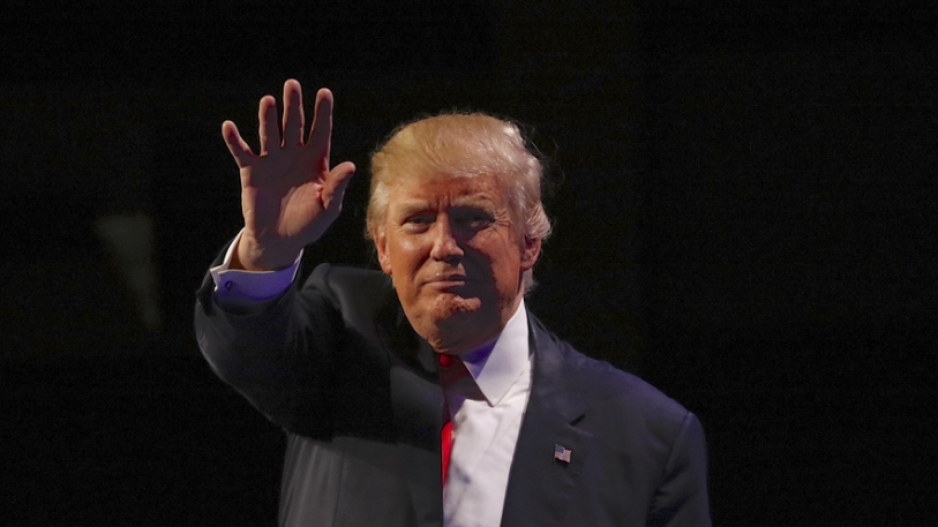The defence in the extradition case of Huawei Technologies Co. Ltd. CFO Meng Wanzhou has filed documents this week outlining the Chinese tech executive’s abuse-of-process defence, alleging the comments of U.S. President Donald Trump have “poisoned” the legal proceedings.
In a number of submitted documents to the Supreme Court of British Columbia, Meng’s lawyers say that Trump’s comments following Meng’s arrest in December 2018 - about intervening and using the Huawei executive’s case as a trade chip in negotiations with China – undermine both the fairness of the extradition proceedings and the integrity of the judicial system at play.
“Where the Requesting State [the United States] engages in conduct that offends our Canadian sense of fair play and decency, the Court must intervene to safeguard the integrity of the judicial process,” documents submitted by Meng’s team said. “This is such a case.
“The President, as the Chief Executive of the Requesting State, has made repeated threats to intervene in the Applicant’s case in order to leverage her prosecution for political purposes. He has expressed his willingness to intervene, and his unequivocal intention to discuss the case with his trade adversary China, his own Attorney General, and the U.S. Attorneys involved.
“These statements, offensive and ominous on their own, are made all the more intimidating due to his history of interference in other recent high-profile criminal prosecutions,” Meng’s lawyers concluded.
The Meng extradition hearing, one of the highest-profile such case in Canadian history, is scheduled to continue on Aug. 17 around the topic of abuse of process – a debate of whether or not American and Canadian authorities’ arrest of Meng at Vancouver International Airport was done with political intentions rather than being a pure criminal prosecution.
The case coincides with Washington’s growing conflict with Beijing around several issues, including Chinese tech companies (such as Huawei) and their business conduct in markets like the United States. Recent Chinese application of a new set of controversial national security laws in Hong Kong – which effectively ended that city’s autonomous self-rule system – has led to further tensions between China and the West.
This month, Great Britain reversed an earlier decision by announcing it is forbidding the use of Huawei technology in the country’s 5G network development. The news leaves Canada as the only country among the “Five Eyes” (United States, Australian and New Zealand being the other three members) to have not outlawed outright the use of Huawei equipment in 5G – which critics say could have severe national-security implications.
Earlier this year, Meng’s double-criminality defence – that the United States’ charges against her constituted fundamentally on Huawei’s violation of Iran sanctions and not on actual fraud – was rejected by associate chief justice Heather Holmes, the judge presiding over the case. It leaves the abuse-of-process argument as the last main topic of contention left on the docket – although the argument will be broken into three different stages and will conclude no earlier than Spring 2021.
But Holmes have also ruled earlier this year against a media consortium request to live-broadcast the extradition proceedings, a nod to the recognition of the potential impact on the process’s integrity if the high-profile hearings were to be made available over the airwaves. Meng’s lawyers, specifically, argued that Trump may view the proceedings and make further comments that would compromise the hearing’s integrity.
In this week’s filings, Meng is making clear that her lawyers will make use of the current geopolitical backdrop – of Trump, U.S.-China and growing tensions – as a key part of her defence in the coming months in a more prominent way than before.
“The President’s statements, and those of others associated with the Requesting State, are shocking and corrosive of the rule of law,” the filings said. “They purport to deprive the Applicant of the right to have her liberty determined by an independent and impartial arbiter – the implication being that the ultimate decision maker will be a political actor rather than a judicial one.
“In light of its conduct, the Requesting State should be disentitled to any further assistance from the Canadian Courts,” the documents concluded. “The misconduct meets the ‘clearest of cases’ standard. This Courtshould stay the proceedings for abuse of process.”
Crown prosecutors have repeatedly said Meng’s arrest is a simple criminal matter – of a state requesting the arrest of a suspect who allegedly committed fraud and theft of technologies belonging to other companies in the United States.
The Crown also noted that the border inspection by the Canada Border Services Agency – the process under which Meng was held for three hours at the airport after her detention, allowing for authorities to seize her electronic devices and passcodes prior to formal arrest – was proper procedure and does not indicate a conspiracy surrounding the arrest (which Meng’s lawyers have argued was the case).




